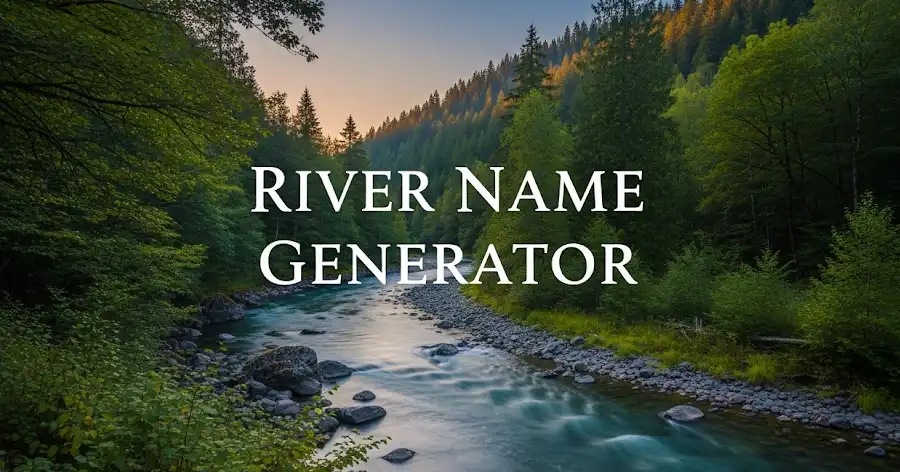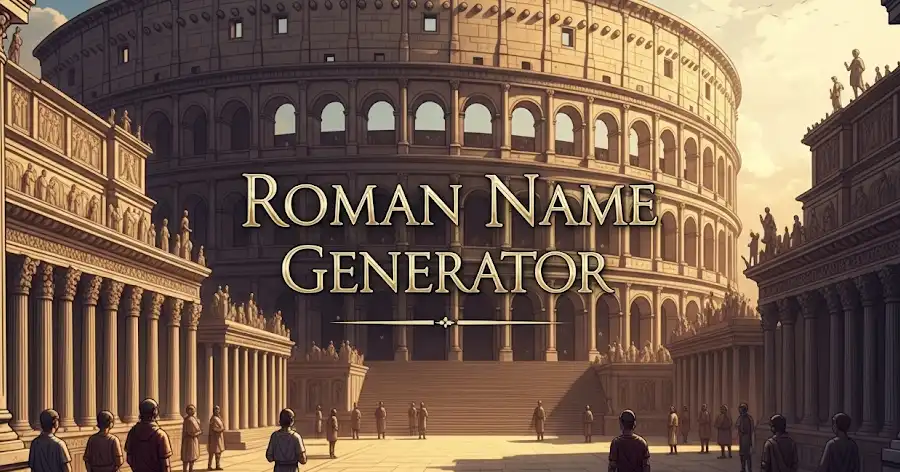Planet Name Generator
Staring into the void of a blank star map? Let's give those new worlds a name worthy of the cosmos.
Let's face it, as a writer, game master, or world-builder, there's a unique kind of terror that comes from a blank page. But nothing is more vast and empty than a blank star map. You have your story, your aliens, your cool starships... but what do you call the planets they visit? "Planet X" just doesn't have that ring of adventure, does it? A planet's name needs to spark the imagination. It should hint at its environment, its history, or the mysteries it holds.
I created this Planet Name Generator because I'm a huge sci-fi fan and I know that struggle all too well. I wanted a tool that went beyond just mashing random sci-fi syllables together. This generator is built to create names that feel real and evocative. It combines classic astronomical naming conventions with creative, fantastical elements to give you a list of worlds that feel like they're just waiting to be charted. Let's fill that star map with adventure.
🪐 Your Star Chart
You haven't charted any planets yet. Find a world you like and click the ❤️ to add it to your star chart!
🔭 Generate Your Planet Name
Ready to chart the unknown? Click the button below to generate 8 unique names for planets, moons, and star systems. Save your favorites and start building your galaxy!
What Makes a Great Planet Name?
A good sci-fi planet name feels authentic. It sounds like it could plausibly exist on a futuristic star chart, yet it's cool and memorable enough to stick in the reader's or player's mind. The best names often follow a few unwritten rules borrowed from real-life astronomy and classic science fiction, giving them a sense of grounded reality, even if they're entirely fictional.
The Scientific Designation
Many sci-fi worlds, especially in more grounded or "hard" sci-fi, use a system similar to real astronomy. A name is often a combination of a star's name followed by a number or letter indicating the planet's position in the system. For example, "Kepler-186f" is a real exoplanet. This style gives a sense of realism and scale to your universe.
- **Example:** Kepler-186f (Real)
- **Our Generator's Approach:** The tool creates names like "Cygnus X-1," "Veridia Prime," or "Helios IV" to mimic this official, exploratory feel. It suggests a universe that is being systematically cataloged.
The Mythological or Thematic Name
Once a planet is colonized or becomes significant, it often earns a "proper" name. Humanity has a long tradition of naming celestial bodies after gods, goddesses, and figures from mythology (Mars, Jupiter, Venus). Sci-fi extends this to fictional gods, historical figures, or concepts. A name like "Prometheus" or "Pandora" instantly gives a planet a specific thematic weight.
- **Example:** The planet "Pandora" from *Avatar*.
- **Our Generator's Approach:** The generator constructs names from syllables that sound ancient and powerful, like "Xylos," "Aethel," or "Kryll," creating a sense of history and lore.
Names for Terrestrial & Habitable Worlds
These are the Earth-like planets, the garden worlds, the new frontiers. Their names often reflect nature, hope, and the promise of a new home. They can sound welcoming, lush, or simply familiar.
Names for Gas Giants & Hostile Planets
Not every world is a paradise. Gas giants, volcanic planets, and frozen wastelands need names that convey their danger and extreme nature. These names are often harsh, powerful, and intimidating.
Names for Ancient & Alien Worlds
These names belong to worlds with non-human origins, or planets that hold the ruins of a long-dead precursor race. They should sound strange, mysterious, and deeply ancient.
💬 Transmissions from Fellow World-Builders
❓ Frequently Asked Questions
🚀 Chart Your Course
Your universe is no longer empty. It is now dotted with worlds of fire and ice, gardens of alien life, and the silent tombs of forgotten races. A name gives a world its identity and its first spark of life. We hope this tool has helped you light up your corner of the galaxy.


